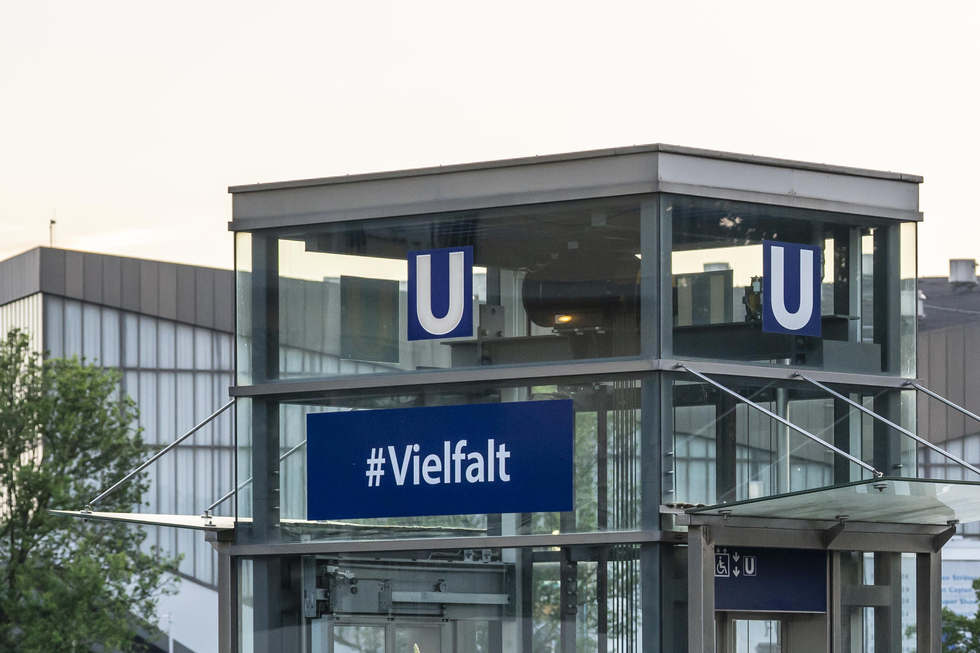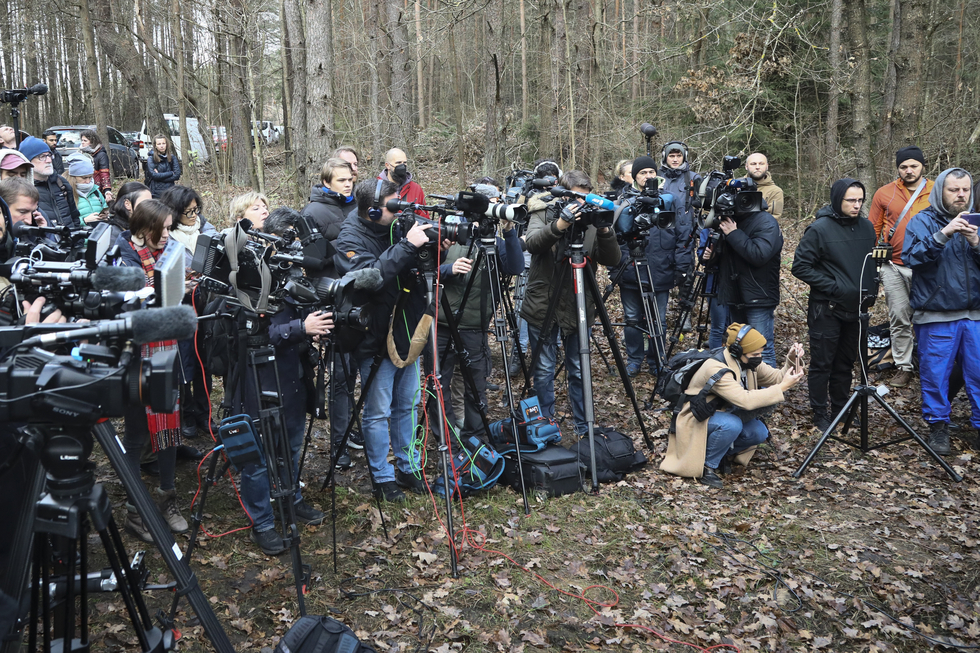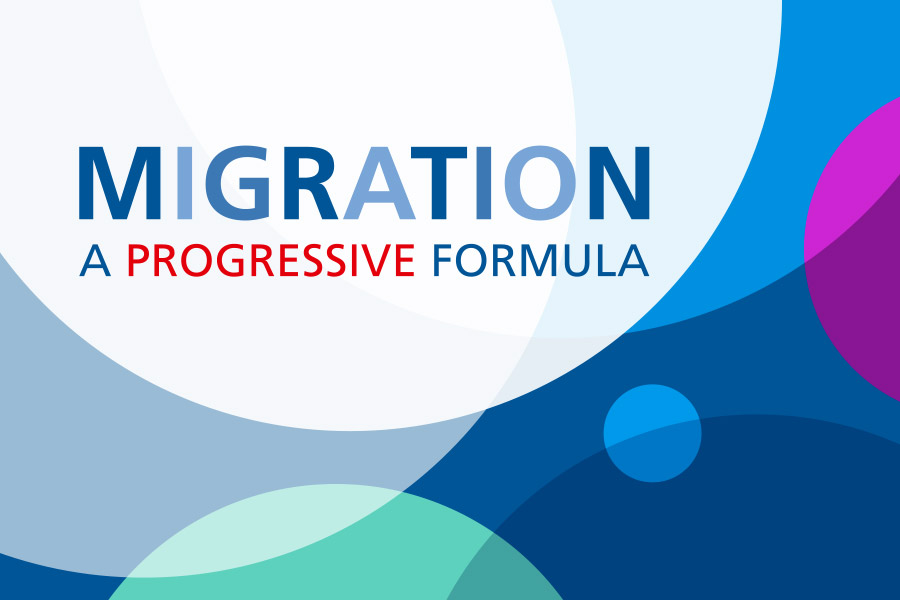Decisive action, smart integration
Poignant issue and polarisation
Each and every year, the migration debate resurfaces in Germany – and each and every year it consistently fails to address the real issue. Each time round, however, the radical voices become louder and the popularity of (radical) right-wing groups increases. Whether centred on the leitkultur, the notorious Rütli School and its culture of violence, Thilo Sarrazin and his controversial views on immigration policy, or what a decade ago was dubbed the “tide of refugees”, the harsh rhetoric often refers to the practical problem of overstretched and overwhelmed municipal authorities.
Since then, this topic has been a constant feature on the agenda and is now the instrument of polarisation employed by right-wing extremists. In the battle of algorithms and headlines, anything goes, especially as this is still the only real issue they have.
Yet, each time the debates reappear, very little changes. Policy announcements are reactive and seldom strategic or forward looking. This is precisely why they fail to get to the crux of the matter: Who or what are we even talking about here? Has a nuanced analysis become too onerous for us these days? Are we really going to settle with “immigrant background” being the main explanatory mechanism – even though this concept no longer holds any significance or validity at all in today’s superdiverse society?
A nuanced analysis is something we rarely seen in the spotlight of the TV talk shows. What we need is a more precise discussion about asylum policy, immigration, education, labour market and social policy. The debate has been ideologised, resulting in a for and against, good and bad rhetoric – and what this brings about is a sentiment that is focused on deficits and flaws but also an unclear, one-dimensional analysis of the issue at hand. Our view of resources and opportunities is obstructed by a knee-jerk defensive stance.
For many years, the nature of the debate has led to a stalemate. Anyone choosing to raise the problems faced in this area found themselves squeezed between two diametrically opposed camps: On the one side were those who essentially saw migrants as allies and socially disadvantaged members of society, and on the other were those who preferred to view migrants solely as a threat to the welfare state and as a security risk.
In my view, this polarisation is caused by imprecise analysis on both sides. Those in the one camp are referring to people who wish to integrate and those in the other are largely talking about those who do not adhere to the rules and are therefore, unsurprisingly, not met with acceptance by society.
But what we do is simply lump everything together and then argue about whether to go with one approach or the other. The result? Deadlock caused by the unclear solutions being put forward.
Added value with considerable challenges
In my view, the fact that migration can add value to society is an undisputed fact. But migration has also brought significant new challenges, something that has been ignored by too many for too long. Infrastructures have failed to adapt to Germany’s immigration society. This is especially true at the municipal level – just look at housing, for example – and particularly evident in the education system.
We need to facilitate an effective and flexible transition to the labour market, provide affordable housing and create a better social mix in residential areas. And we need representation, role models, people who are well received here and are an integral part of our society. People who can build bridges. Across the country, those with an immigration background are significantly underrepresented at both local and state level. This is particularly true in territorial states such as North Rhine-Westphalia. Being the only one of “my kind” among 31 Chief Administrative Officers in Germany’s most populous federal state, I myself am a good example of this.
Diversity adds value – provided we develop and implement effective funding instruments.
Unfortunately, however, right now we are not even able to distinguish between the situation in cities and rural areas. Refugees and asylum seekers are distributed using the “Königstein key”, a mechanism that is no longer suited to today’s social realities. Densely populated towns in particular have officially reached the limits of their capacities. Factors such as the unemployment rate and the proportion of foreigners also have a role to play in the settlement of new citizens at the municipal level – this requires tailored solutions.
Much like the approach taken by Bart Somers, the renowned mayor of the Belgian town of Mechelen, we need a dual strategy with a “resource-oriented perspective on diversity” on the one hand and “zero tolerance for transgressive behaviour” on the other.
Integration, achieving the successful reception of people in our society, is a challenging and long-term task. We constantly have to ensure that those who come to Germany are able to gain a genuine foothold in our society. This includes providing access to the various public infrastructures – be that bus connections between people’s accommodation and local authorities, schools, and workplaces, or participation in cultural life. We need a school system that meets the needs of an immigration society. This means enough staff, strong cooperation between school social workers, teachers and those running extracurricular activities, high-quality after-school care, and a focus on primary school – the one type of school that all children attend together, irrespective of their background. This is something that everyone benefits from: young families, working parents and children from educationally disadvantaged backgrounds alike. Ultimately, when we invest in education and provide people with qualifications for the labour market, we are securing the future of Germany as an advanced industrial country.
Identifying situations of excessive demands without succumbing to racism
What we have failed to do, however, is pay enough attention to the “black sheep” among migrants. All too often, those who view immigration as problematic are automatically consigned to the right-wing camp. This has to stop. We have to be able to speak about the issue without succumbing to racism. On this side of the dual strategy, we need to acknowledge that some immigrants behave in a way that promotes disintegration more than integration. These individuals are often from societies with patriarchal structures, frequently Muslim countries. And something else we have to accept is that a disproportionate number of suspected criminals are of non-German origin.
Moreover, it is evident that when there are too many children with significant language barriers as well as additional support needs that need to be properly addressed, preschool establishments and schools end up being overstretched to an intolerable extent. We also need to talk about the fact that, within the different groups of immigrants, there are those who neither value nor agree with our liberal democratic basic order or our fundamental rights and it is precisely these groups that harbour racists, antisemites and homophobes. Ideologies that show contempt for humanity have no place in our country. We must take a firm stand against such beliefs, wherever they come from.
As Germany’s first Chief Administrative Officer (Landrat) with an immigrant background, I see it as my responsibility to set an example. My own identity as a source of acceptance among migrant groups and the majority society alike certainly helps me achieve this.
Howto live together in harmony and be part of the same team is one of the most pressing questions affecting the political mainstream. Under no circumstances must we leave this terrain to the extremists. They want division, we want cohesion. Let us approach this together, “without fear and without illusions”, to quote Germany’s former president Johannes Rau in a much-noted speech given on this very issue in the year 2000.
About
Ali Doğan has been the Chief Administrative Officer (Landrat) for the district of Minden-Lübbecke since February 2023. His parents came to Germany in the early 1970s and he was born in Herford in 1982. He grew up in Enger, Spenge and Bünde and now lives with his family in the town of Minden, in east Westphalia.
The opinions and statements of the guest author expressed in the article do not necessarily reflect the position of the Friedrich-Ebert-Stiftung.


